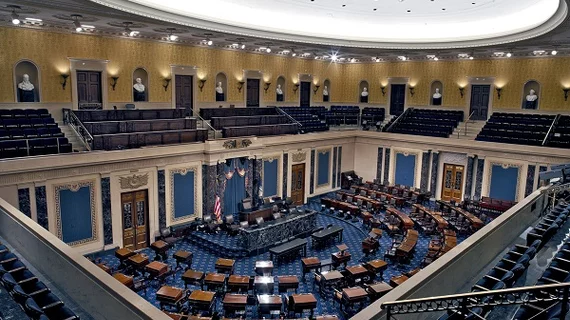Congress pushes back on the Supreme Court overturning Chevron Doctrine
The U.S. Supreme Court recently overturning the Chevron Doctrine—initially established after the 1984 landmark ruling in Chevron v. Natural Resources Defense Council—isn’t sitting well with a group of Democratic and independent senators.
Elizabeth Warren (D-Mass.) is leading the charge to bring the Stop Corporate Capture Act (SCCA) to the Senate floor, a bill that would establish an Office of the Public Advocate to support public involvement in rulemaking by federal government agencies and limits the ability of courts to strike down regulations from agencies such as the Environmental Protection Agency, Federal Trade Commission, Office of the National Coordinator for Health Information Technology, and U.S. Food and Drug Administration, among others.
The SCCA first was introduced in the House of Representatives in 2021 by Pramila Jayapal (D-Wash.), and it has so far failed to gain traction. But, the bill would ultimately limit the recent ruling against Chevron Doctrine, a decision that ultimately limits the ability of the federal government to regulate corporations.
Warren is joined by Richard Blumenthal (D-Conn.), Cory Booker (D-N.J.), Mazie Hirono (D-Hawaii), Ben Ray Luján (D-N.M.), Edward J. Markey (D-Mass.), Jeff Merkley (D-Ore.), Bernie Sanders (I-Vt.), Chris Van Hollen (D-Md.), Peter Welch (D-Vt.), and Ron Wyden (D-Ore.), who are all serving as Senate cosponsors for the legislation.
“Many Americans are taught in civics classes that Congress passes a law and that’s it, but the reality is that any major legislation enacted must also be implemented and enforced by the dedicated, nonpartisan experts at our public agencies to become a reality,” Jayapal said in a statement released by Warren.
“Too often, this process is driven by corporate lobbyists and special interests who know exactly how to make these processes benefit their bottom lines at the cost of public interest. Our SCCA couldn’t be more critical after the extreme, conservative Supreme Court stripped the ability of governmental agencies to implement and enforce passed laws. I am proud to lead this bill, which will level the playing field and ensure that laws passed for the people actually work for the people,” she added.
According to the statement from Warren, the bill has earned a litany of endorsements from unions, advocacy groups and academic research organizations.
With identical bills now introduced in both the House and the Senate, it remains to be seen if the legislation will gain any traction.

